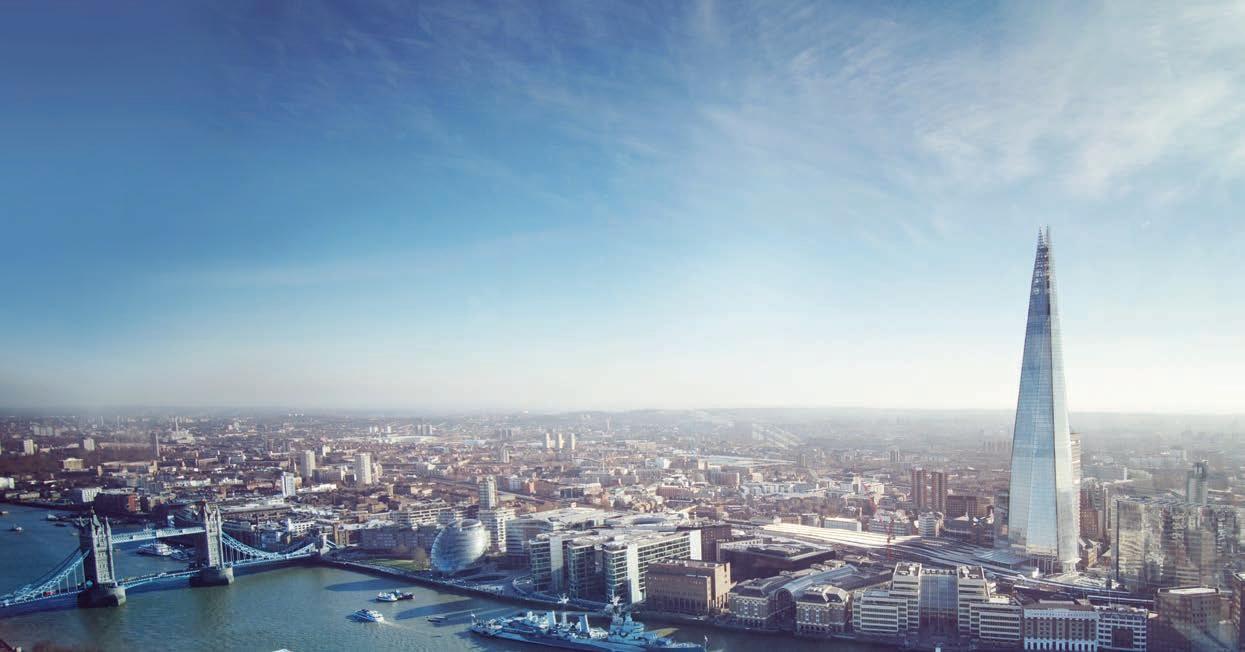OUR GREEN FUTURE BY CAT ACHESON
COVID-19, climate change, and the University of London’s commitment to sustainability.
W
hat will the COVID-19 pandemic mean for the Climate Crisis? In the spring of 2020, when lockdowns around the world put the brakes on economic activity and confined whole populations to their homes, many people looked for a silver lining and wondered if this dire situation would at least help to stop climate change. There’s no denying that 2020 has proven to be an extraordinary year in terms of carbon emissions. At the end of April, the International Energy Agency forecast that global energy demand would contract by 6 per cent in 2020, as the pandemic dealt a massive shock to the world economy. This is equivalent to removing the annual energy demand of India, the thirdlargest electricity consumer in the world. Global energy-related CO2 emissions are set to fall by 8 per cent this year as a result – an unprecedented decrease and almost six times larger than the drop in emissions during the financial crisis of 2009. It’s tempting to believe that this will be the start of a new era, and that the world will never go back to an environmentally-disastrous economic growth model driven by unfettered fossil fuel combustion. But without major international commitments and coordinated strategies to replace the carbon economy with a green alternative, emissions will quickly rebound as the COVID-19 crisis subsides. 2020 could indeed be a turning point, but only if we seize this opportunity for radical change.
A Green Recovery We need a Green Recovery: one which kick-starts the transition to an environmentally-sustainable, sociallyjust economic system. As governments around the world implement fiscal stimulus packages to resuscitate the economy, it is crucial that these
measures align with the target of limiting global warming to 1.5 degrees above pre-industrial levels, as set out in the 2015 Paris Agreement. This means no bailouts given to companies unless they can demonstrate how they will change their practices to substantially reduce their carbon emissions. There have already been positive examples of this, for example the French Government’s bailout package for Air France, which was granted on the condition that the airline will cut almost all domestic flights where the journey could easily be made by rail instead. However, climate stipulations to bailout packages won’t be enough to prevent catastrophic global heating on their own, or to secure the path to clean and inclusive economic growth. We also need large-scale investment in new green projects such as renewable power generation, energy efficiency innovation, and ecosystem regeneration. Investment in low-carbon projects during the COVID-19 recovery period will not only benefit the climate; the evidence shows that it will also deliver myriad co-benefits for people and society. From cleaner air and improved public health, to more green spaces, better indoor living conditions and new employment opportunities, a Green Recovery offers the possibility of a ‘just transition’ to a low-carbon future, where everyone benefits equally, and no-one is left behind.
Positive investment by the UK A recent report by WWF and Vivid Economics – adapted specifically for the context of the COVID-19 recovery – sets out how investment to bring the UK to its target of reaching net zero carbon emissions by 2050 would deliver £90 billion of annual benefits across all areas of society. Retrofitting homes for energy efficiency, for example, would create immediate job opportunities and would help to tackle fuel poverty, thereby potentially saving the UK’s National Health Service (NHS) billions of pounds annually. Meanwhile, expanding offshore wind capacity would support 28,000 new
50 WC1E | london.ac.uk/alumni






















